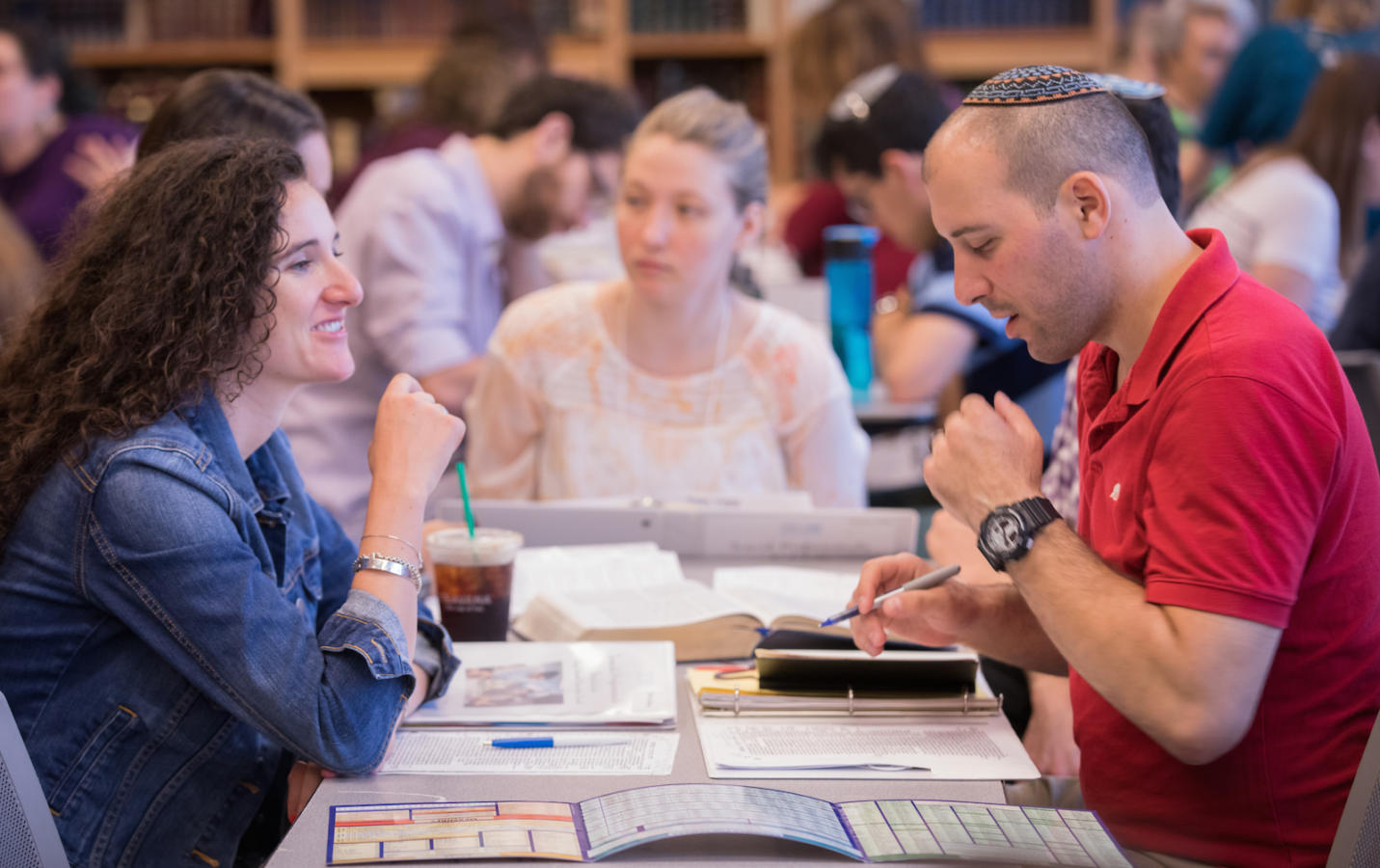Why study Torah?
Jewish tradition makes the argument for Torah study in a variety of thought-provoking ways.
One is contained in a Mishnah in Avot:
[Yehudah b. Teima] used to say: “A five-year old engages Bible; at ten, Mishnah; at 13, mitzvot; at 15, Talmud; at 18, marriage; at 20, one chases [a livelihood]; at 30, one attains power; at 40, understanding; at 50, counsel; at 60, old age; at 70, gray hair; at 80, might; at 90, meditation/ one is bent over; when one is 100, it is as if one is already dead and has passed from the world.
According to this source, it’s not a matter of if we learn Torah, but when. Jewish tradition sees studying Torah as a universal expectation, as integral to life as forming relationships or establishing a career.

Help us keep Jewish knowledge accessible to millions of people around the world.
Your donation to My Jewish Learning fuels endless journeys of Jewish discovery. With your help, My Jewish Learning can continue to provide nonstop opportunities for learning, connection and growth.
Anchoring Torah study in the formative years of youth, this Mishnah clearly sees this practice as foundational to becoming a person. Torah study is not just an intellectual exercise, but a pathway to living out eternal values. Torah is a part of the transmission of culture.
The democratic and universal expectations here call on all Jews to engage with Torah as their birthright. It’s not just a book on the shelf of a research library, but an ethical and religious will that has been handed down from their ancestors. Torah is an heirloom, a constitution. It is an inheritance that the Jewish people have shared with the world.
Some of the content of the Torah may at first seem foreign, difficult, or even irrelevant to our lives today, but great rewards await those who continue to engage it. Perhaps the minutiae of rabbinic debate about Shabbat observance won’t jump off of a page of Talmud at you. But the notion of a day of rest for an overworked world, and the care to maintain its sanctity in great detail, is an ethos that can animate and inspire any scholar.
Still not sold? The Midrash, commenting on the verse (Exodus 16:22) “And they did not find water,” teaches: “Words of Torah are similar to water… because they withdrew from words of Torah for three days, they rebelled.”
While the Jewish people are long out of the desert by this point in their history, the warning still resonates. The Western culture in which we live has great merit, but there are also larger, corrosive elements. There’s a culture of self-indulgence, of focusing solely on yourself and what you like. In this sense, Torah is counter-cultural. The way water fights your body’s natural path towards dehydration, Torah can help transcend selfish inclinations and provide guidance toward a life of purpose and obligation.
But what if you have already studied Torah in Hebrew school or Jewish day school? Is there still any value in returning to it?
The aggadic work Avot Derabbi Natan offers this response:
R. Akiva says: “If you learned Torah in your youth, learn it as an adult. Don’t say, ‘I won’t learn Torah as an adult,’ because you never know which period of learning will make a deeper impression, perhaps both will remain with you and even complement one another, as it says, ‘In the morning, plant your seeds and don’t desist from planting in the evening’ (Ecclesiastes 11:6).”
That’s the beauty of engaging with Jewish tradition— the journey is never over. Study must be maintained as a habit.
Learning Torah is a spiraling experience, where one returns over and over, often to the same text. New ideas emerge at different phases of life, bringing insights that weren’t there before. What makes the Torah a living document is the living people who study it. When new voices cease to engage Torah learning, wrote Rabbi Chaim of Volozhin, “The Torah becomes stale, heaven forbid.”
Whether the draw of Torah study is intellectual curiosity, a sense of heritage or a yearning for greater meaning, it’s never too late to engage in Jewish scholarly tradition. And most important, Torah needs people to study it to keep it fresh and vital.
Rabbi Ethan Tucker is president and rosh yeshiva at Hadar, an egalitarian yeshiva based in New York City.



